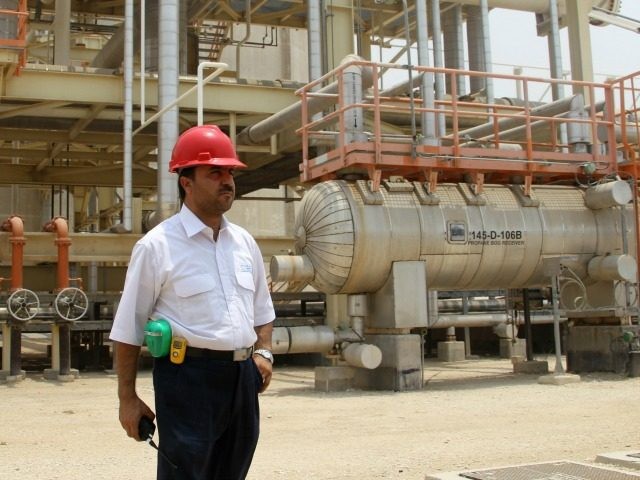Iraq is set to “significantly” reduce its reliance on Iranian energy imports by 2021, Iraq’s finance minister said this weekend.
Iraqi Finance Minister Ali Allawi revealed the energy plan in an online interview with the Atlantic Council, a Washington-based international affairs think tank, on August 21.
“This … has been going on for several years now, it is unlikely we can find a short term substitute, but a medium-term effort can be done by linking the Iraqi grid to the Gulf grid,” Allawi said. “The dependence on Iranian electricity and energy will begin to trail down significantly sometime next year.”
Allawi accompanied Iraqi Prime Minister Mustafa al-Kadhimi on his trip to Washington, D.C. last week. The diplomatic visit was part of a “U.S.-Iraq strategic dialogue … focused on security, economic, and energy cooperation between the two countries,” Iraqi Kurdish news agency Rudaw reported.
Kadhimi met with U.S. President Donald Trump at the White House on August 20 and the two discussed expanding economic ties between Iraq and the U.S. and signed “a series of oil and energy agreements to develop Iraq’s energy sector,” according to Rudaw.
On August 19, Iraqi Foreign Minister Fuad Hussein told reporters in Washington that Iraq expected to sign a deal that day with U.S. oil company Chevron to develop one of Iraq’s major oil fields.
“Regarding the signing of a memorandum of understanding or an agreement with Chevron, I believe that it will be signed today, yes,” Hussein said at a joint press conference with U.S. Secretary of State Mike Pompeo.
Allawi seemed to confirm Chevron’s oil deal with Iraq in his August 21 interview, saying that among the energy agreements signed by the U.S. and Iraq last week was a deal with Chevron to “develop the Iraqi oil and gas sector.”
In addition to the U.S., “Saudi Arabia is to invest in the Iraqi energy and gas sector, including Saudi-owned companies Aramco and Aqua group,” Allawi told the Atlantic Council.
Iraq has long struggled with chronic power outages and electricity shortages.
“Rampant electricity shortages have in past years been a rallying call for protestors, most notably in the summer of 2018,” Rudaw noted. Summer temperatures rise to over 120 degrees Fahrenheit in Iraq, nearly 40 percent of which is technically considered a desert region.
“The War [in Iraq, 2003-2011], corruption, insecurity, and lack of investment have altogether contributed to a deteriorating grid, leaving Iraqis at times with as little as five hours of national electricity per day. Privately owned generators set up in neighborhoods try to supplement the lost hours, making Iraqis pay twice for electricity,” Rudaw reported.
Grappling with a failing grid and an energy shortage, Iraq has been importing electricity and natural gas from neighboring Iran in recent years to fuel its generating stations.
“Iran exports 1200-1500 megawatts of electricity to Iraq on a daily basis, in addition to 38 million cubic meters of natural gas to feed several of Iraq’s power stations, according to Sayyid Hamid Hosseini, secretary-general of Iran-Iraq Joint Chamber of Commerce. In June, Baghdad and Tehran signed a two-year contract to continue the imports,” the report stated.
The U.S. has imposed economic sanctions on Iran for its nuclear proliferation and support for terrorism, including the Lebanon-based terror group Hezbollah. So far, the U.S. has allowed Iraq to import energy from Iran based on a temporary waiver program it hopes to phase out.
“The current waiver, Iraq’s ninth, issued in May, gives the country 120 days to continue its energy imports without financial penalties for the trade that has otherwise been banned by the U.S., after Washington withdrew from the 2015 nuclear deal and began reimposing sanctions on Iran in November 2018,” Rudaw reported on August 23.

COMMENTS
Please let us know if you're having issues with commenting.